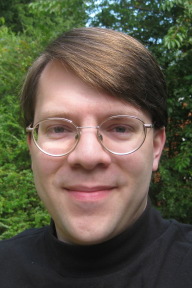SSBSE 2013 is please to present two luminary keynote speakers. Titles and abstracts will be made available as soon as possible.
Advances in Automated Program Repair and a Call to Arms
Abstract In this keynote address I survey recent success and momen- tum in the subfield of automated program repair. I also encourage the search-based software engineering community to rise to various chal- lenges and opportunities associated with test oracle generation, large- scale human studies, and reproducible research through benchmarks.
Wesley Weimer is an associate professor of computer science at University of Virginia, USA. In collaboration with Stephanie Forest, he presented GenProg, an automated patch generation tool based on genetic programming, back in 2009, for which he is probably the most well known within the Search-Based Software Engineering research community. His research background also includes programming languages and software verification and he also worked on CIL (C Intermediate Language).
Some Recent Work on Multi-objective Approaches to Search-Based Software Engineering
Abstract Multi-objective algorithms have been used to solve difficult software engineering problems for a long time. This article summarises some selected recent work of applying latest meta-heuristic optimisa- tion algorithms and machine learning algorithms to software engineering problems, including software module clustering, testing resource alloca- tion in modular software system, protocol tuning, Java container testing, software project scheduling, software project effort estimation, and soft- ware defect prediction. References will be given, from which the details of such application of computational intelligence techniques to software engineering problems can be found.
Xin Yao is a professor of computer science and the director of CERCIA (Centre of Excellence for Research in Computational Intelligence and Applications) at University of Birmingham, UK. He is an IEEE fellow and a former editor in chief of IEEE Transactions on Evolutionary Computation. He is perhaps the most widely known, within the SBSE community, for the theoretical analysis of the computational complexity of search algorithms; his research interests also include ensemble learning, neural networks, and multiple classifiers.



